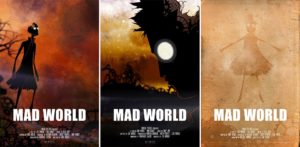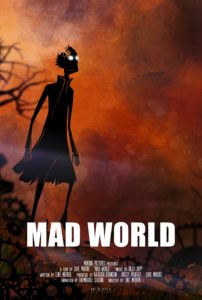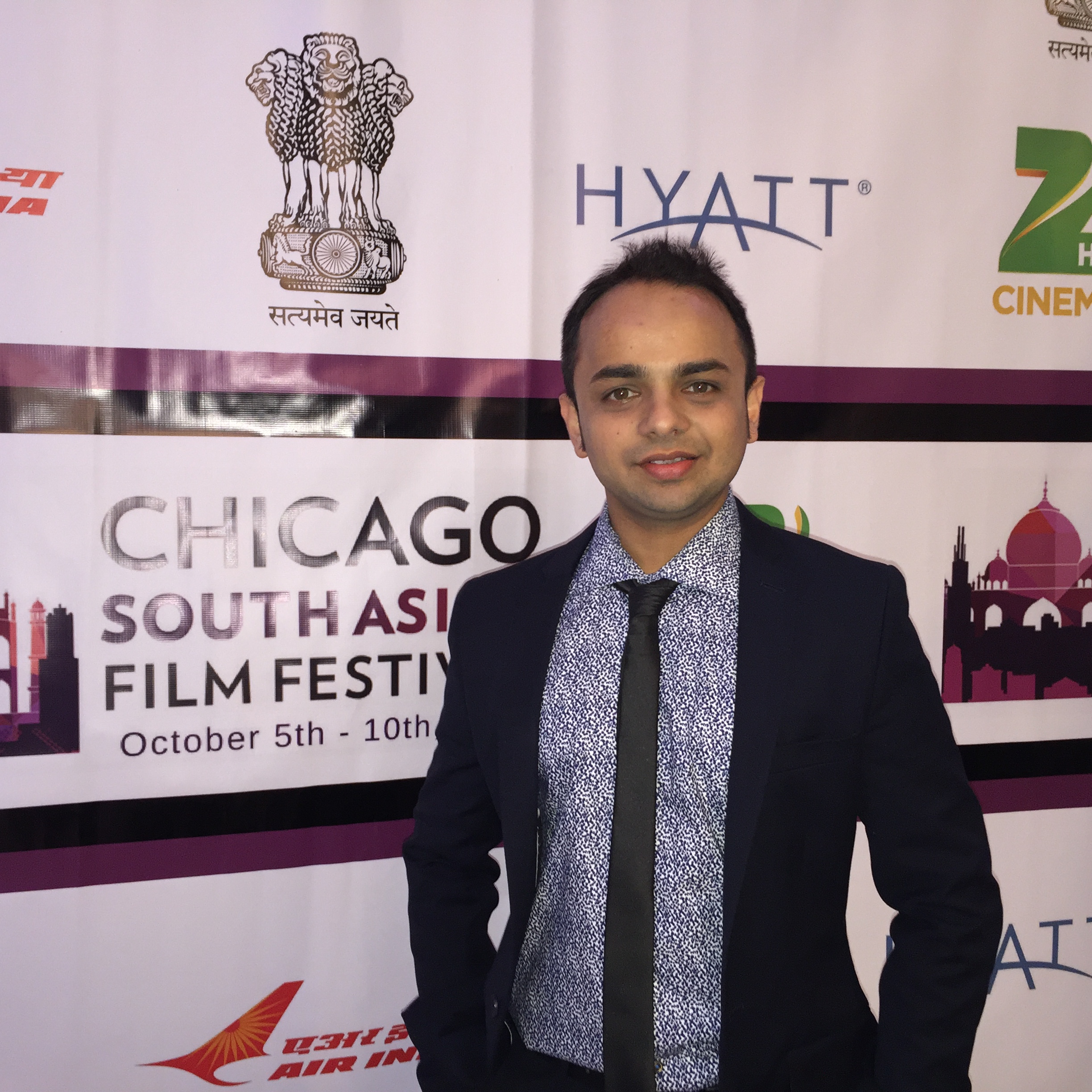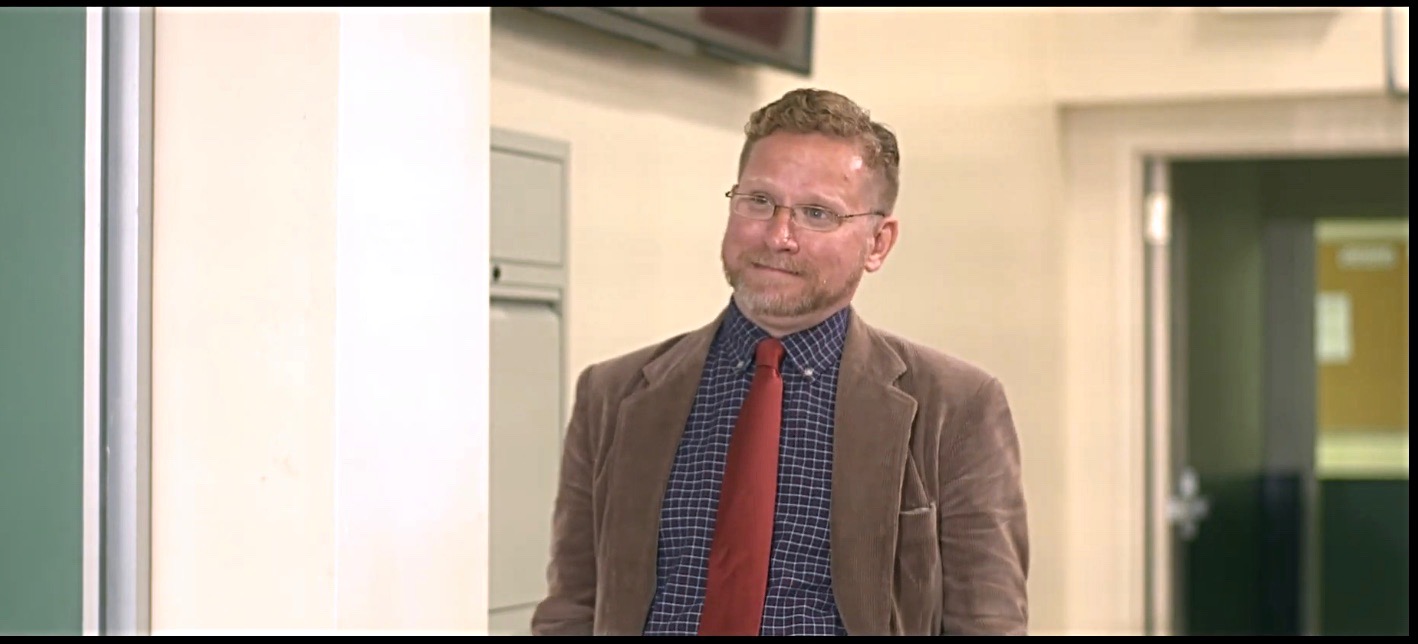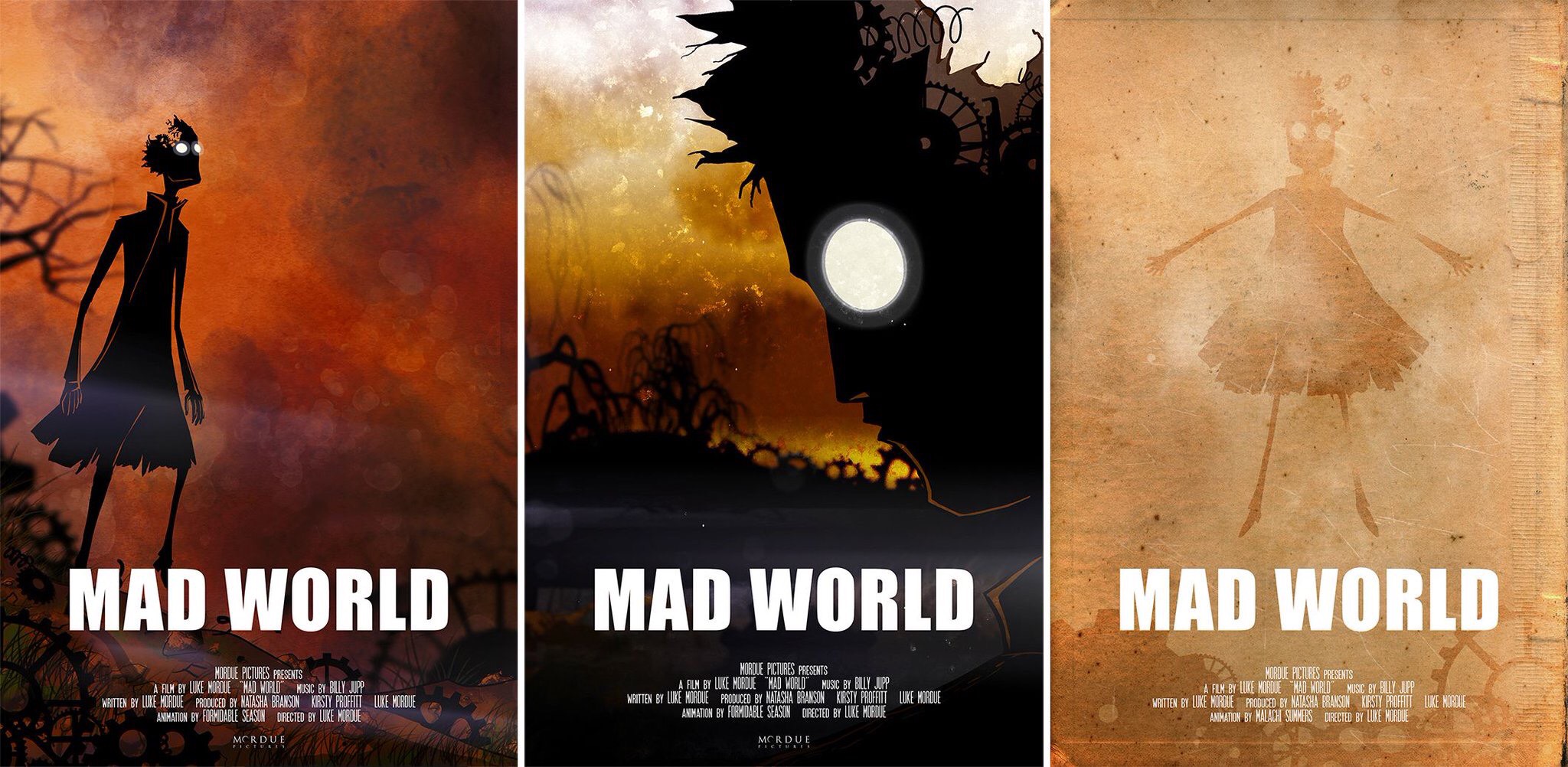
In Their Own Words: Producer Natasha Branson & Writer/Director Luke Mordue of “Mad World”
Mental health. It has to be, in total, one of the most common subject matters addressed across the world. The theme of countless fiction and non-fiction films, books, TV shows, medical journals, key note speakers et al, one thing is abundantly clear–it’s a serious topic of concern, curiosity, and interest to the general public, health professionals, and beyond as they all makes strides to better grasp the very nature of mental health issues, how to better diagnose them, and therefore come up with even better treatments.
In view of said points, I am very proud to have had the opportunity to provide some specific questions to producer Natasha Branson and writer/director Luke Mordue of Mordue Pictures in reference to their newest and highly innovative documentary feature film concept entitled “Mad World”. Currently raising further finances through an active Indiegogo crowdfunding campaign, the duo was more than willing to take the time to answer my queries about this ambitious project, why it is so important to make it, the team behind it, and the wonders of crowdfunding.
So, OneFilmFan.com presents my interview with these two talented denizens of the independent film arena, heralding from England. Here is what they had to say.
One Film Fan: Let’s begin, well, at the best place possible—the beginning! In broad strokes, how did this overall documentary concept first come about for you both?
Luke Mordue: I’ve always wanted to venture into documentaries as well as narrative films. We made a short documentary about mental health a few years back over a weekend and it went on to win an award at Mind Rights Film Festival in Portugal, voted by various mental health professionals. I was flattered it was well received and glad it seemed to help some people, but I found myself eager to go deeper. I am so frustrated with my own confusion with mental illness even though I study it so deeply, and it occurred to me that this must be the case for so many others, more so even.
So, I put together the idea of a documentary about mental health, but not to rehash what has already been successfully done by many other filmmakers. I wanted to go deeper into it, questioning things that are stated confidently as fact nowadays. I want to find out what the hell mental health actually is and why the hell it’s such a problem.
Natasha Branson: Mental health is something very close to Luke’s heart and a topic that he’s always wanted to delve further into. There were so many questions that we wanted to ask, and he asked others (including myself) what things we would want covered in the documentary. From the diverse answers, it was decided to tackle the topic as a whole to get to the bottom of how it is seen ion today’s society and what it actually is.
O.F.F.: Getting more specific, you indicate this takes a look at “the most taboo areas of mental health” via interviews with professionals who actually suffer from various illnesses. That’s a unique approach. Expand on this for us.
L.M.: I should have read ahead really as I’ve half answered that already. We know mental health is worldwide, we know men don’t talk about it as often, and suicide rates are extremely high. We know this, but knowing it and truly believing it, really feeling it, are two very different things. If you were to ask me about those things, I could answer you them now, or guide you to a documentary that has already been made. What I couldn’t tell you right now and guide you to is a clear and honest approach to what mental illness is. There are still so many opinions on it. I’m always EXTREMELY pushy about opinions and facts being two very different things, something I feel like we’ve never quite got to grips with as a society.
N.B.: Knowledge is a powerful thing, and the everyday knowledge of mental illness is not consistent, often surrounded by confusion. By discussing taboo areas, this will help people to make up their own mind, come to conclusions and, in turn, I believe that this will help to reduce the stigma that surrounds the subject.
O.F.F.: You next indicate 5 key questions that the film will also explore. Why these particular areas and how do you determine them as primary points to focus on?
L.M.: From my experience, if you question things as bluntly as we have in the campaign, people start to get a bit twitchy and nervous. This is a clear indication of the fear of looking ignorant, rude and / or quite simply an arse hole. This should not be the case. People should not throw their opinions around as fact, but people should not feel afraid to be skeptical of said facts, especially as so many facts turn out to be opinions. These questions were mentioned clearly in the campaign to get the point across that not only is this documentary going to look into mental illness as something itself, but will also expand into an investigation into what the hell is going on with mental health and why is it all so damn confusing for people.
O.F.F.: Understanding the ramifications of mental illness and raising even more awareness worldwide about it also figures heavily in this film. How much of an impact are you aiming to have in shining the light on all of this?
L.M.: If the audience of this film walk away with more questions than answers, then I’m fine with that too as at least they’re asking them. I feel we’ve gotten too used to going “yup, “Silver Linings Playbook” came out. A few documentaries were made about it. OKAY EVERYONE PAT YOURSELVES ON THE BACK WE’VE COVERED MENTAL ILLNESS AND ITS SORTED. Now what’s next on the list?” “OH TRANSVESTITES”. (by that I mean, treating these subjects like fads rather than real issues).
N.B.: Amazing conversations have started about mental health and reducing stigma. It’s definitely a topic that is on the tip of everyone’s tongues. It’s so important that this doesn’t lose momentum, and that’s why we are tapping into areas that aren’t always so readily discussed, hence approaching the documentary in a different way. If our film brings in a new audience to view this topic then that’s great. If our documentary helps just one person to understand mental illness a little more, then that’s an achievement in my eyes.
O.F.F.: They say timing is everything. Straight up, why now is it the time to create this documentary?
L.M.: In truth, a couple of years ago would have been ideal, as it was very ‘fashionable’ then. But, I am so grateful I didn’t make it then, because I feel like I would of made a mistake and made another of those pat on the back films. For me, this is the perfect time because we, as a society, are getting confident pretty damn quickly that we get it now, when we really, really don’t. Not knowing is dangerous sure, but knowing the wrong information–now that’s where it all falls apart.
O.F.F.: The film is not just going to be your “standard” documentary, creatively speaking. Tell is about the very intriguing and certainly artistic approach stylistically you’re adapting for this project.
L.M.: Yes, we’ve got a brilliant animation team working with us to get together a short story that will coincide with our interviews, slightly fitting to their conversations, but also going by its own narrative. It will be shown in small segments across the documentary until it reaches its finale with us. I thought to myself “what do we have here?”– Those discussing what its like. Check. Those giving a professional opinion. Check. Looking into taboo aspects. Check. And I thought “what if someone still doesn’t get it?” For example, we always imagine someone with anorexia looking in the mirror and seeing a fat person, as this helps the general public get a general idea. But in fact, most people who suffer with anorexia do not see it like this at all. So, it is a well meaning misconception”. It became clear then that the best thing to do was do our own little metaphors and representations.
N.B.: We will have a metaphorical animation running in segments in-between our interviews. It follows a character in a very steampunk, post-apocalyptic style world where he represents all the people who have a mental illness and how it feels.
O.F.F.: Fill us in a little now about yourselves and the rest of the primary team behind this effort. Luke, I seem to recall this project has special meaning for you, correct?
L.M.: Yeah, I have always been very open about the fact I have been diagnosed with Cyclothymia. It was always slightly an apology before you know me sort of thing, in case I did something weird. Sometimes it was also an excuse, but mainly it was simply that I refused to feel ashamed or embarrassed of it. It always made me feel like I had a reason for feeling weaker when I felt weaker, which funnily enough made me feel stronger as a person. So I wanted to / will continue to use this to enforce the understanding and acceptance of mental health.
This is my second project I’m working on regarding mental health ,and they’re both ending up crossing at the same time, the first being a narrative feature and the second being this one, a documentary. They’ll go hand in hand quite nicely I think.
N.B.: There are two producers working on this project, myself and Kirsty Proffitt (a wonderful and extremely talented person to have!). I have produced a variety of shorts, including “Smile”, and am also a producer on “A Quiet Storm”. But, this is my first feature documentary.
O.F.F.: You have adapted a hugely popular format for gaining needed backing to make this film a reality—Crowdfunding. Tell us how that experience has been as well as what it feels like to tangibly see the results of support from people worldwide.
L.M.: NEVER DO IT. But in seriousness, it’s great fun creating graphics and pushing the project. It forces you to put effort in at an earlier stage that you wouldn’t normally do, giving you a good load of marketing material for the other end. Not to mention, once the films made, you’ve already got an audience waiting for it, as they’ve helped you get the film made. I always see it like your best mate holding you up to get you over that finishing line at the London marathon. We all win together. Especially if we pull this film off like I intend to.
N.B.: Crowdfunding is a full time job and extremely stressful, but the results can be so rewarding. The people behind you are the ones who get the film made, and are also your audience down the line – so they are very important! It’s very humbling to hear words of support from people who back and share our campaign and that’s what keeps us going.
O.F.F.: As with any venture, though, there are risks involved. Briefly expand on some of those in order to emphasize why the backing via your Crowdfunding campaign is ever more paramount.
L.M.: The problem with crowdfunding on a personal level is you begin to really annoy your close friends and family. This is just a given as it’s all you’re posting about and going on about, but it has to be done. They sit there saying they’re there for you when you talk about your dreams. Well guys, this is that time to be there for us!
On a professional level, if the film isn’t completely funded then we have to rework the budget completely to get the film made. It means working on the animation from a much more limited position, as well as music, and potentially interviews. The budget we have here is the lowest we could get it whilst still making the film we all set out to make.
Under that, we’re going to be able to make the film still and we will, it just may take slightly longer than anticipated. We won’t be cutting corners, plus if the quality of work is falling too much due to it we will come to a halt rather than keep going. The film will be completed. But for it to be completed when we say its going to be completed, we need to finance the film in full.
O.F.F.: Ok, we’ve read it, understand it, grasped the benefits and challenges involved. Now, how do people get involved if they are interested in supporting this project?
L.M.: If people want to find out more about the project, see things a bit clearer, and see who we’ve got involved on the project so far, then they should visit us at our Indiegogo campaign page:
https://igg.me/at/madworldfilm/x
Here they’ll find all sorts and be able to make see the perks and make a pledge themselves to get some lovely treats and perks.
N.B.: Exactly what Luke said. You can also follow us on Twitter at @MadWorldFilm,
“Like” our Mordue Pictures Facebook Page at www.facebook.com/morduepictures,
or email us at info@morduepictures.com if you have a direct question.
So there you have it in a well-explained nutshell! Plus, with a newly updated piece of exciting news in regard to the film, check out the brand new Teaser Trailer for the film HERE!
In wrapping up, I extend a very heartfelt “Thank You!!” to Natasha Branson and Luke Mordue for taking the time to do this interview about what looks to be a truly unique journey through the ever-varying worlds of mental health, presenting it in such a way as to dispel pre and misconceptions about it, and showcase examples of people who have not only had to battle it, but have done so successfully, challenges and all. We will definitely be looking forward to this project! But, as Luke and Natasha mentioned above, there’s still some ground to cover to see this come to full fruition. So, take the time to check out their campaign and support it if at all possible, as this is relevant more than ever in the fluctuating world we reside in.
As always, this is all for your consideration and comment. Until next time, thank you for reading!
